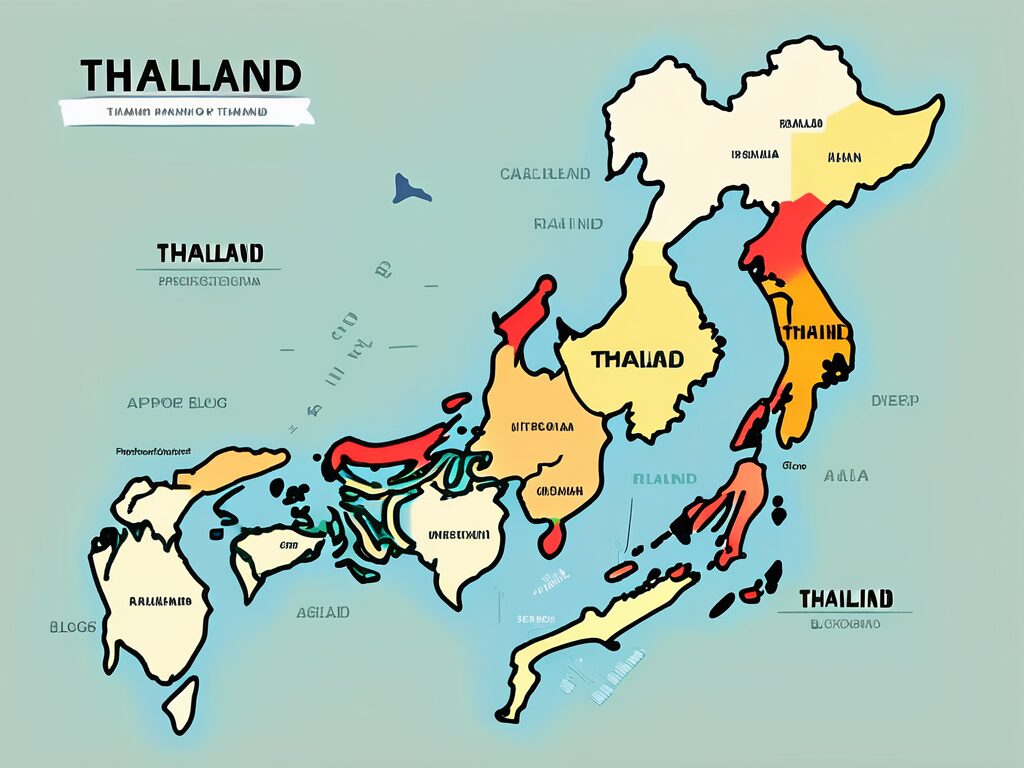Unlocking English Proficiency in Thailand: Insights for 2025
Thailand, renowned for its rich cultural heritage and breathtaking landscapes, faces significant challenges in achieving high levels of English proficiency. Despite its global tourism appeal, the nation has struggled to establish a robust command of the English language among its populace.
As English continues to serve as the global lingua franca, essential for international business, academia, and digital communication, it is imperative to assess Thailand’s current standing in this critical area. This guide aims to provide insights into the state of English proficiency in Thailand, particularly for international educators and consultants.
Current Landscape of English Proficiency in Thailand
According to the EF English Proficiency Index, Thailand ranks 89th out of 100 countries, categorizing it within the ‘very low proficiency’ tier. This ranking is particularly concerning given the country’s reliance on tourism, where English is often the primary mode of communication.
However, there are notable exceptions. Urban centers such as Bangkok and Chiang Mai exhibit higher levels of English usage, especially in tourist hotspots and international business environments. This localized proficiency indicates potential areas for growth and development.
Role of English in the Educational Framework
The Thai educational system acknowledges the significance of English and has integrated it into the curriculum from primary education onward. Nonetheless, the effectiveness of English instruction remains a contentious issue. Key challenges include:
- Qualified Educators: A shortage of proficient English teachers, many of whom are non-native speakers, hampers effective language instruction.
- Teaching Methodologies: The prevalent focus on rote memorization rather than practical application limits students’ ability to use English in real-world contexts.
To enhance English language education, it is crucial to address these challenges through targeted teacher training and curriculum reform.
English Proficiency in Professional Settings
English usage in the Thai workplace varies significantly across sectors. In multinational corporations and the tourism industry, English is frequently employed. Conversely, local businesses often exhibit limited English communication. Key observations include:
- Career Advancement: Many Thai professionals recognize the importance of English for career progression, leading to an increased demand for language training resources.
- Resource Accessibility: While there is a growing interest in English courses, accessibility and affordability remain barriers for many individuals.
Strategies for Enhancing English Proficiency in Thailand
Improving English proficiency in Thailand requires a multifaceted approach. The following strategies are recommended:
Investment in Teacher Development
Enhancing the quality of English instruction necessitates substantial investment in teacher training programs. Recommended actions include:
- Providing scholarships for teachers to pursue advanced studies abroad.
- Implementing in-service training programs focused on modern pedagogical techniques.
- Recruiting native English speakers to serve as educators and mentors.
Such initiatives will foster a more competent teaching workforce, ultimately benefiting student outcomes.
Focus on Practical Language Use
Shifting the educational focus from rote learning to practical application is essential. This can be achieved through:
- Incorporating interactive lessons that emphasize speaking and listening skills.
- Designing real-world tasks that require the use of English in practical scenarios.
This pedagogical shift will enhance students’ confidence and competence in using English effectively.
Conclusion
The challenge of improving English proficiency in Thailand is complex and multifaceted. However, with strategic investments in education and a commitment to reform, significant progress can be achieved. As the landscape evolves, it is crucial for educators and consultants to remain engaged and proactive in fostering English language skills among Thai learners.
As we look towards 2025, the potential for Thailand to enhance its global standing in English proficiency is promising, provided that stakeholders collaborate effectively to implement these strategies.
Elevate Your Teaching Career with IPGCE
For educators seeking to contribute to Thailand’s journey towards English proficiency excellence, the International Postgraduate Certificate in Education (iPGCE) offers a transformative opportunity. Join a network of educators who have experienced a 50% increase in interview callbacks and a 45% rise in promotion rates. The UK’s leading Teacher Training Course is designed for working professionals aiming to balance career development with existing commitments. Do not let inadequate qualifications hinder your progress. Enroll in the iPGCE program today and advance your teaching career!

